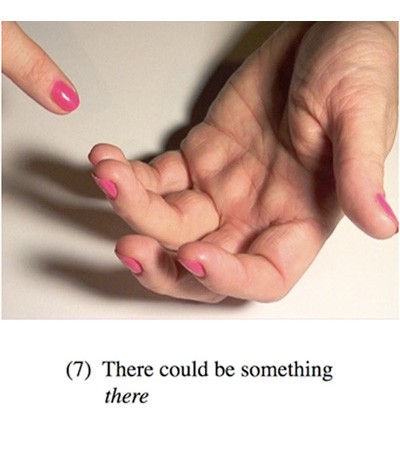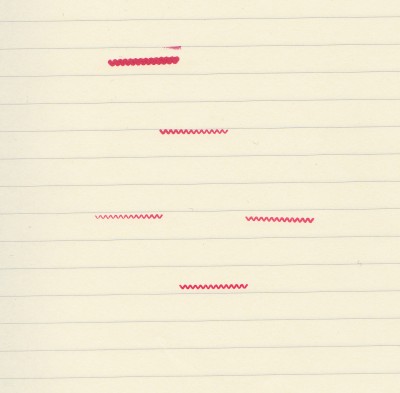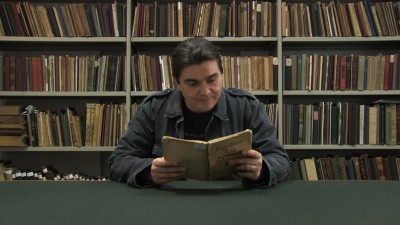This week I have been working on MY READING DID THIS TO ME, a performance lecture that I will give as part of UNFIXED on December 2nd 2010 at the Flat Time House in London. There will also be a workshop (in collaboration with Hyun Jin Cho) on December 3rd. See the full programme here.
The project is part of Reading for Reading’s Sake, organised by Helen Kaplinsky and Maurice Carlin. In June I took part in a previous RfRs event at Islington Mill in Salford.
At that event, I presented a session on READING AS PUBLISHING. This began from an interest in how private moments of reading could be “published” as performances, readings, further texts, conversations, and other art works. I was interested in what might be learned from such an act, and the gains, losses and transformations involved with practicing reading in this way.
The present project explores unfolding that notion further. The project has also been informed by the context of the Flat Time House, and by thinking about John Latham’s work. A good introduction to both of these is a video of John Latham talking about his work and giving a tour of the flat time house here.
Inparticular, this led me to think about what a practice of reading produces, and whether that XXXX can be understood, literally or metaphorically, as system, network, sculpture, poem, or something else entirely. I wanted to make conscious and deliberate the accumulative effects of different reading moments.
All this will take a (momentarily) final shape during the talk tomorrow. Thinking about the talk has also led me to engage with a particular group of texts and writers that I might not have read right now were it not for this project. Inparticular I have been reflecting on this quote from Anais Nin:
But Jean Carteret was alive and his apartment which I had described minutely… was absolutely unchanged. Only it seemed darker and dustier. I could not tell whether it was time which had layered dust on the objects from Lapland, from Africa, from South America, from all the places he had visited, or whether my own vision of them had lost the sparkle of poetry I then saw in them, and which had worn off. He still seemed like an astrologer, a fortune teller, a mysterious character whose constant activity did not manifest itself into a body of work. He had found writing difficult, laborious. Now he was enthusiastic about the notion that writing was disappearing, and that he could talk into a tape recorder. He wanted a tape recorder. Then all this profuse, imagistic talk he spent so lavishly in cafés, would become a work, there would be a record of his endless dissertations on esoteric subjects.
At the café he talked abstractions. He made drawings. He seemed more than ever removed from the present, from humanity. He was dealing in abstractions so esoteric and obscure that I could only listen. When you know someone well, and have once followed the traceries of his fantasies, been familiar with them, you do not recognize as easily the signs of schizophrenia, but this time I felt it. He had gone too far into space. He spoke a language which could not be shared. It was far beyond astrology. It was like a vast web in which he entangled himself. His eyes were unseeing. I once described them as all-seeing because he was then a visionary, and he guided his course by psychology and astrology. But now he was spinning words, concepts, so far removed from our reach that I wanted to grasp him physically and rescue him. It was an evening which dissolved in a long monologue, unanswerable, unreachable.
I felt chilled, desolate. What had kept him bound to earth and human beings, and what permitted him to lose gravity, and be pulled into a void?
And this quote from Bertolt Brecht:
I’ve been revising the second scene. It’s a hell of a job in the open air. But the relationships are becoming simpler and more human all the same. Though the struggle may be becoming over-intellectual. I must stir in some more ingredients, more haggling over coffee, forenoon, belches, primitive life… At the same time I’m beginning to feel an urge to write plays about stupid people. ‘Mankind in Pursuit of Money’, that kind of things, fleeting, colourful, malicious plays, a wild life with Kaffirs and caryatids, a fast-moving plot.


